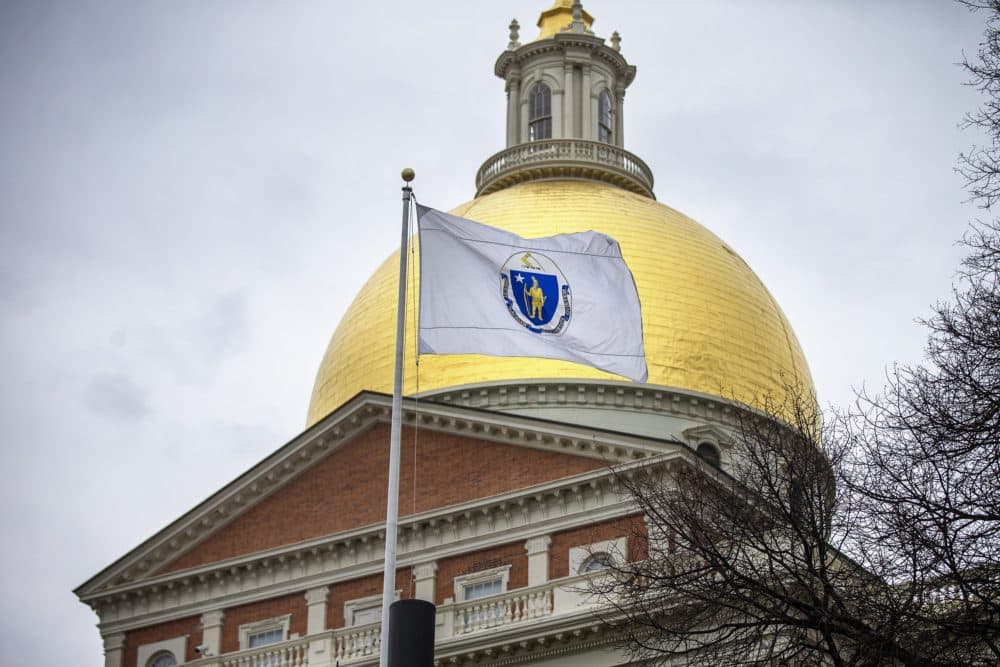Advertisement
Health Care Workers Join The Police Reform Debate In Mass.

Some health care providers and public health officials are weighing in on the police reform debate. Both a state and national effort are underway seeking changes in policing because the organizers say it's a public health issue.
As the Massachusetts House began debate on a policing reform bill Wednesday, a group of more than 400 public health officials sent a letter asking lawmakers to approve specific parts of the bill, such as eliminating qualified immunity, which protects police from lawsuits alleging misconduct. The letter also supports a ban on the use of chokeholds and tear gas, and barring the use of facial recognition technology.
The Massachusetts Public Health Association, which is behind the letter, said police violence is one cause of health inequities in Black and brown communities.
"It's not just the egregious violence that we've seen played out," said Carlene Pavlos, Executive Director of the Massachusetts Public Health Association. "Also the stress and trauma of the structural racism that is built into the over-policing of those communities is, in and of itself, a health issue that has negative health consequences."
The letter is signed by doctors and public health officials from Massachusetts General Hospital, Boston Medical Center, Harvard Medical School, UMass Medical School, Beth Israel Deaconess Medical Center and other institutions.
Some Massachusetts police chiefs have criticized the bill and say it is being rushed through the legislature in response to police violence that has happened in other parts of the country.
Meantime, a group of public health officials is collecting signatures on a pledge not to collaborate with law enforcement. The group points to the policy statement approved by the American Public Health Association in 2018 that declared police violence a public health issue. In June, the APHA again called police violence a public health crisis.
The pledge, which started circulating this week, asks that police not be involved with public health. The signatories promise not to work with several law enforcement agencies; not to apply for grants or publish research that benefits those agencies; and not to participate in projects that use police to enforce public health guidelines, including having police enforce coronavirus policies.
Christine Mitchell, of Massachusetts, who co-authored the APHA 2018 policy statement and helped write the pledge, said public health professionals should take a stand during this moment of national reckoning on police and a pandemic.
"With police enforcing mask guidelines and sheltering-in-place orders, its like throwing one public health crisis at another," she said. "We see over-policing as a public health crisis, and obviously [COVID-19] is too. Using police to protect public health feels completely incompatible."
Mitchell said so far more than 170 public health professionals have signed the pledge.
